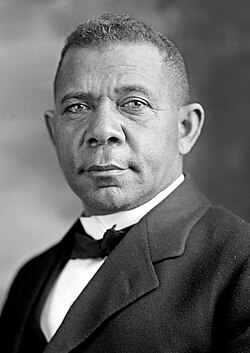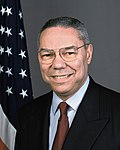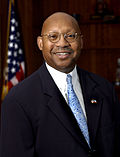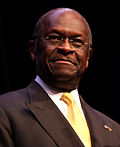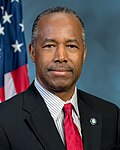This article has multiple issues. Please help improve it or discuss these issues on the talk page . (Learn how and when to remove these messages)
|
| Part of a series on |
| Conservatism in the United States |
|---|
 |
| Part of a series on |
| African Americans |
|---|
 |
Black conservatism in the United States is a political and social movement rooted in African-American communities that aligns largely with the American conservative movement and is part of black conservatism around the world. [1] It is often associated with the Christian right (per 2007 data). [2] Black conservatism emphasizes social conservatism, traditionalism, patriotism, capitalism, and free markets.[ not verified in body ]
Contents
- Overview
- Elections
- Beliefs
- Historical basis
- African-American conservative politicians
- Alabama
- Alaska
- Arizona
- Arkansas
- California
- Colorado
- Connecticut
- Delaware
- District of Columbia
- Florida
- Georgia
- Hawaii
- Illinois
- Indiana
- Iowa
- Kansas
- Kentucky
- Louisiana
- Maryland
- Massachusetts
- Michigan
- Minnesota
- Mississippi
- Missouri
- Nebraska
- Nevada
- New Hampshire
- New Jersey
- New Mexico
- New York
- North Carolina
- Ohio
- Oklahoma
- Oregon
- Pennsylvania
- South Carolina
- South Dakota
- Tennessee
- Texas
- U.S. Virgin Islands
- Utah
- Vermont
- Virginia
- Washington
- West Virginia
- Wisconsin
- Wyoming
- Other people
- United States judges
- TV personalities, authors and journalists
- Military
- Columnists
- Athletes and entertainers
- Education and business
- Civil rights, abolitionists and activists
- Organizations
- See also
- References
- Further reading and listening
- External links
During the Reconstruction era, many black voters supported the Republican Party. [3] Booker T. Washington had a more conservative approach to politics in the United States while W. E. B. DuBois called for more radical change. [4] Some African Americans supported Democrat Woodrow Wilson's first presidential campaign and were betrayed by his policies once in office. [5] Under Franklin D. Roosevelt's administration, during his first two terms, civil rights legislation was not passed, however, New Deal programs led to the black vote becoming more split. [6] In 1960, the Kennedy-Johnson campaign promoted civil rights as a central issue and during their administration, they passed anti-discrimination legislation, gaining the black vote. Since then, the Democratic Party has held a majority of the black votes in America, [7] although Pew Research Center polling has found that the percentage of African-Americans who identify as Democratic has declined in recent years, from 75% during Barack Obama's presidency to 67% in 2020. A 2017 sample size of 10,245 voters concluded that just 8% of African-Americans identify as Republican. [8]
Influential black Republicans in the early 21st century who have held public office include U.S. Senator Tim Scott, [9] U.S. Supreme Court Justice Clarence Thomas, [10] Virginia Lt. Gov. Winsome Sears, [11] and Cabinet secretaries Ben Carson, [12] Condoleezza Rice, [13] and Colin Powell. [14] Political commentators Candace Owens, Thomas Sowell, Shelby Steele, Armstrong Williams, Larry Elder, Walter Williams, and Jason L. Riley are influential figures in black conservatism.
